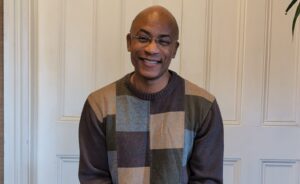TW: This blog post briefly mentions suicide in paragraph 5.
You don’t have to know me long to pick up that I have exactly two personality traits: my passion for environmental justice and my passion for classical music. One of my favorite composers is Johannes Brahms. I love him not only for his lush music and his charity work, but also because I relate to him. Brahms was afraid of failure, making it rare that he would act without thinking and even rarer that he would take a risk. Brahms would never publish anything that he wasn’t absolutely sure would be a success. He even went as far as to destroy his younger self’s works so they could never be published posthumously. He spent 20 years writing his first symphony since he was afraid that it would never be as good as those by Beethoven. He never married, which historians speculate was due to an inability to express his feelings and a fear that he would fall on hard times and not be able to provide for his family. His hesitant personality seeped into his music as well. While everything he wrote is good, his works are often criticized for seeming subdued. The passionate longing of Tchaikovsky’s works or the existential anguish of Mahler’s symphonies is less obvious in Brahms’ music.
I too, suffer from Brahms’ affliction of being so careful that I can end up harming myself. I am constantly making sure I never make anyone too upset. I don’t apply for jobs I don’t think I’ll get, and I don’t talk to people I don’t think will like me. I won’t tell someone my pronouns if I expect the person will get them wrong. Everything has to be perfect or I won’t do it at all. I have to get an A on every assignment, and part of the reason it’s taken me so long to write a blog post is because I didn’t think my past topics have been interesting enough. I am essentially so afraid of being externally criticized that I am constantly doing it myself.
I mentioned environmental justice above because the hesitant personality that I share with Brahms stops me from reaching my full potential as a climate activist. I’m too afraid to criticize people about climate, especially when it comes to people in power. I’m anxious about reaching out to those who could affect more change than I for fear of being rejected or made fun of. I am especially hesitant to speak to the right people about the changes I would like to see in classical music, since it is a field that heavily emphasizes merit, and I expect, perhaps erroneously, that someone without a music degree like me would be laughed out of the room.
My calculations on where I will succeed and where I won’t extend to the rest of the world, and it is why I have very little hope about the state of the climate crisis. I know the solutions exist, but I have no faith that they will be implemented. I try to seek out positive news about climate, but no success story has stopped me from thinking, “by the time I’m 40, millions of people will have died and if I’m not one of them I’ll be scavenging a barren world for basic necessities and all my opportunities to create music will be gone.” It would seem that Brahms too, let his critical personality affect how he walked through life. Instead of being afraid for the end of the world (at least, not to my knowledge), he was simply unpleasant to be around. He was bitter, ironic to the point of being cruel, and frustratingly reserved.
There are a few moments in Brahms’ music where you see his hardened shell cracking just a bit. One is the thunderous and heartbroken opening of his D minor piano concerto, which supposedly depicts the moment Brahms found out his friend and mentor, Robert Schumann, had attempted suicide. Another is “A German Requiem,” which he wrote as a way for him to mourn both his recently deceased mother and Robert Schumann. This piece, which is one of my favorites, is praised for both its technical compositional achievements and for its universal poignancy (requiems up to that point has been tied to Christianity, but Brahms was purposeful in leaving out the name Jesus Christ so that everyone could find comfort in the piece).
It is quite comfortable being careful and pessimistic. As a result, I am not looking to become a trailblazing climate activist with an illustrious career as a touring soloist. I am however, looking for ways to work with myself so I am less afraid to act, and that I become a little more hopeful. I hope that I will not have to experience the loss that Brahms did to find the cracks in my hardened shell, but rather that there will be moments and opportunities that I feel so passionate about that I just have to take a risk.




